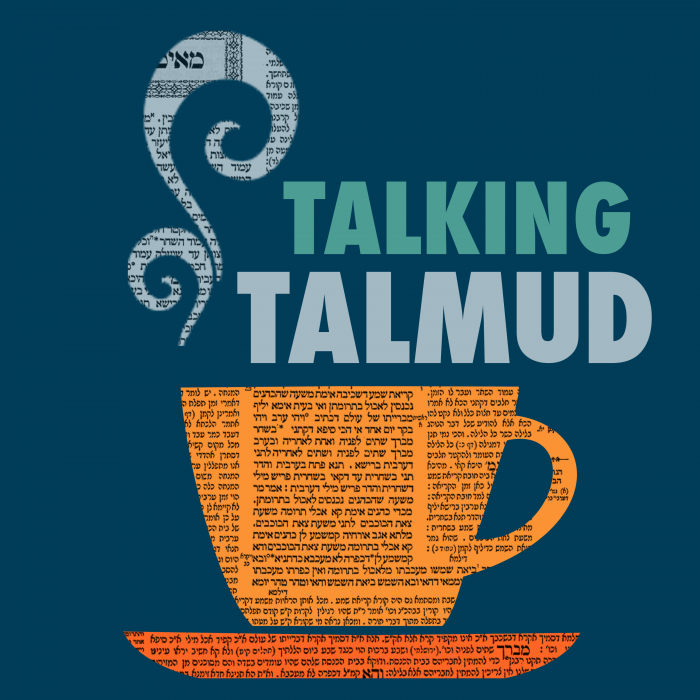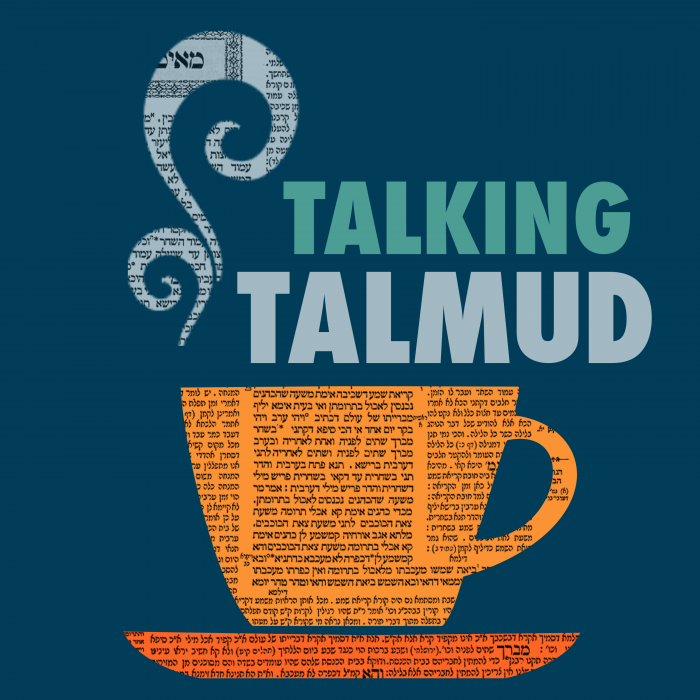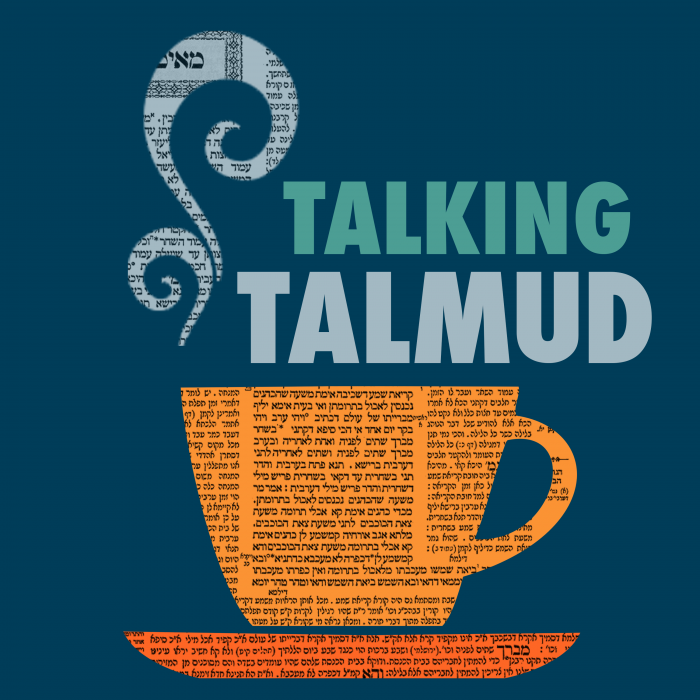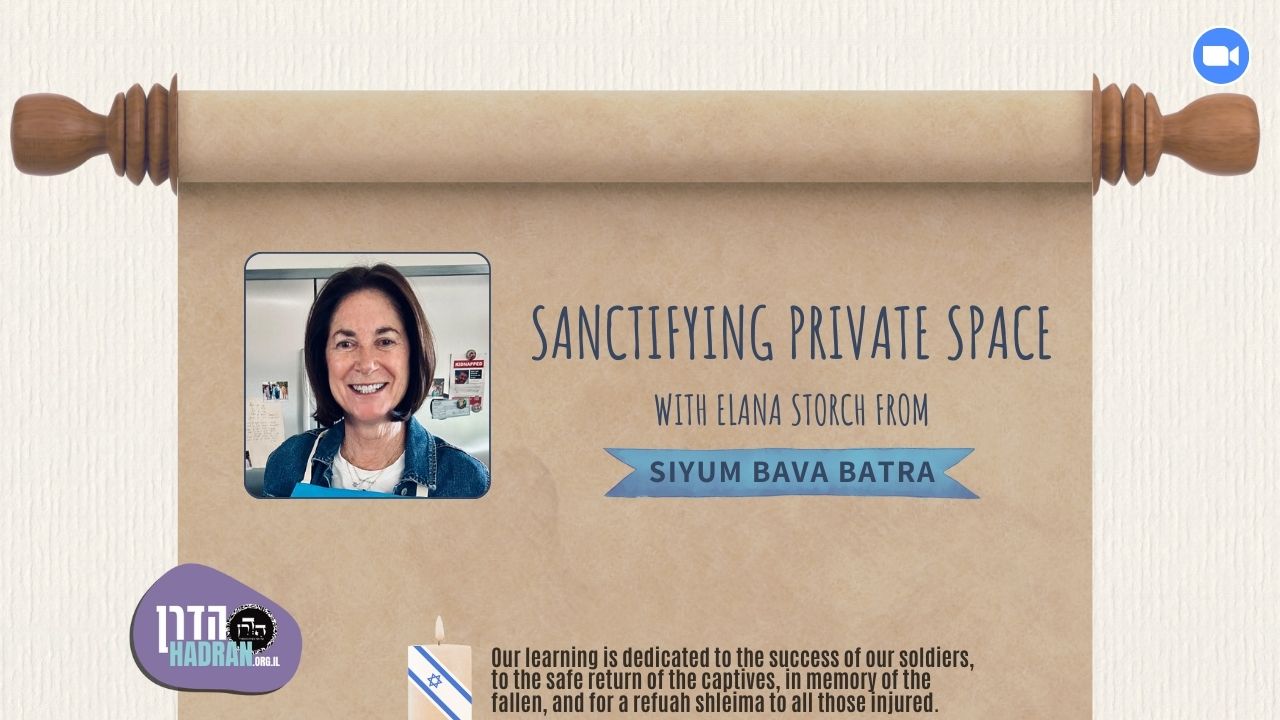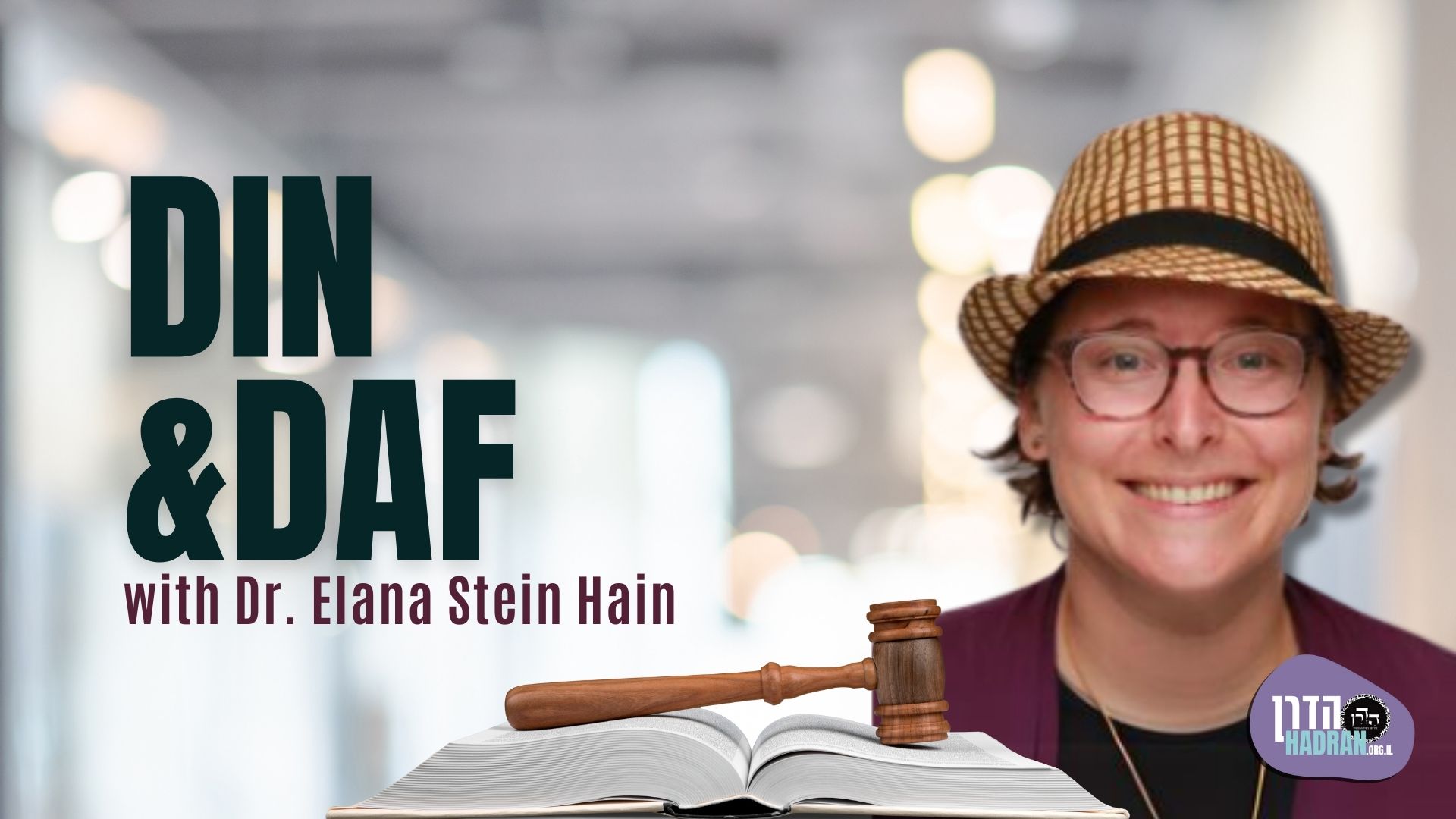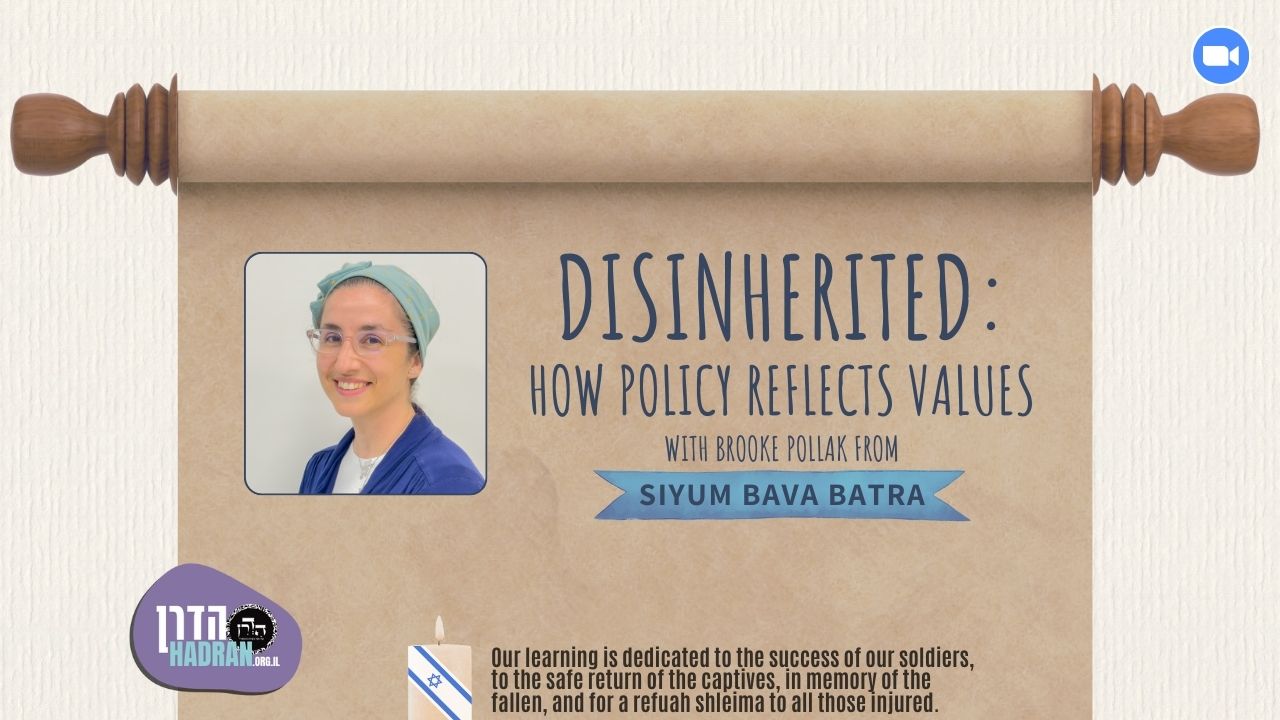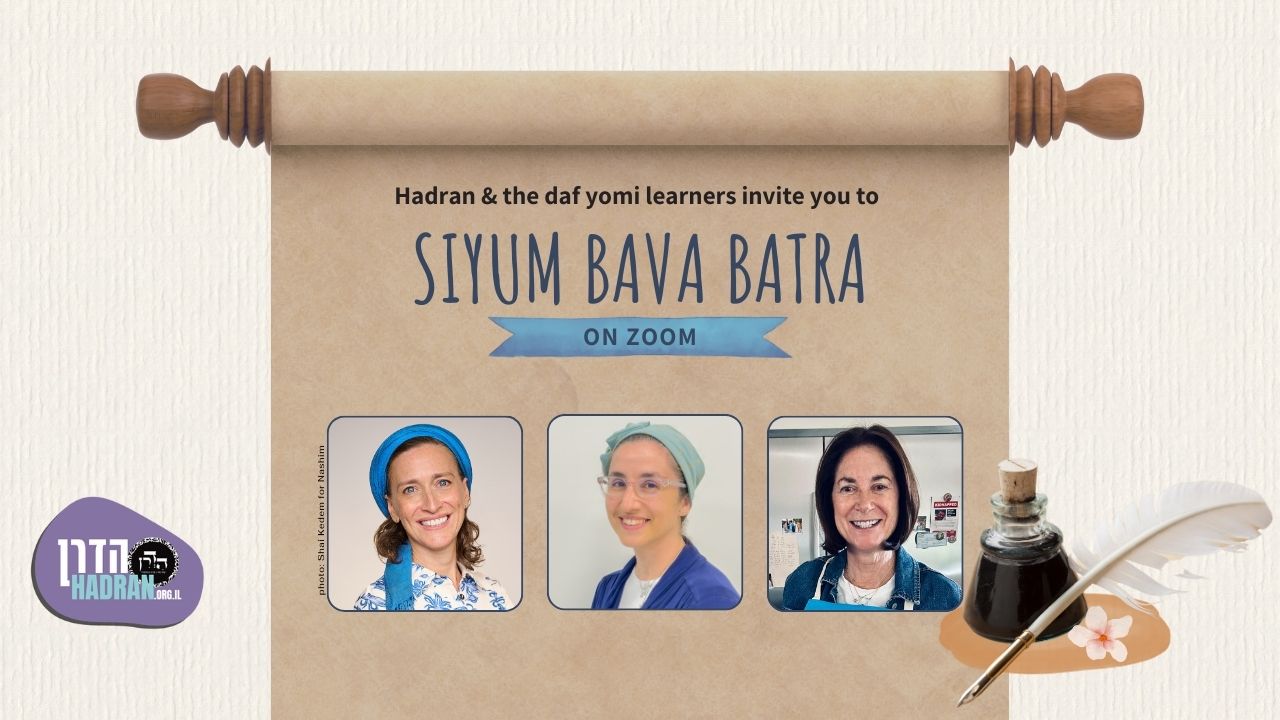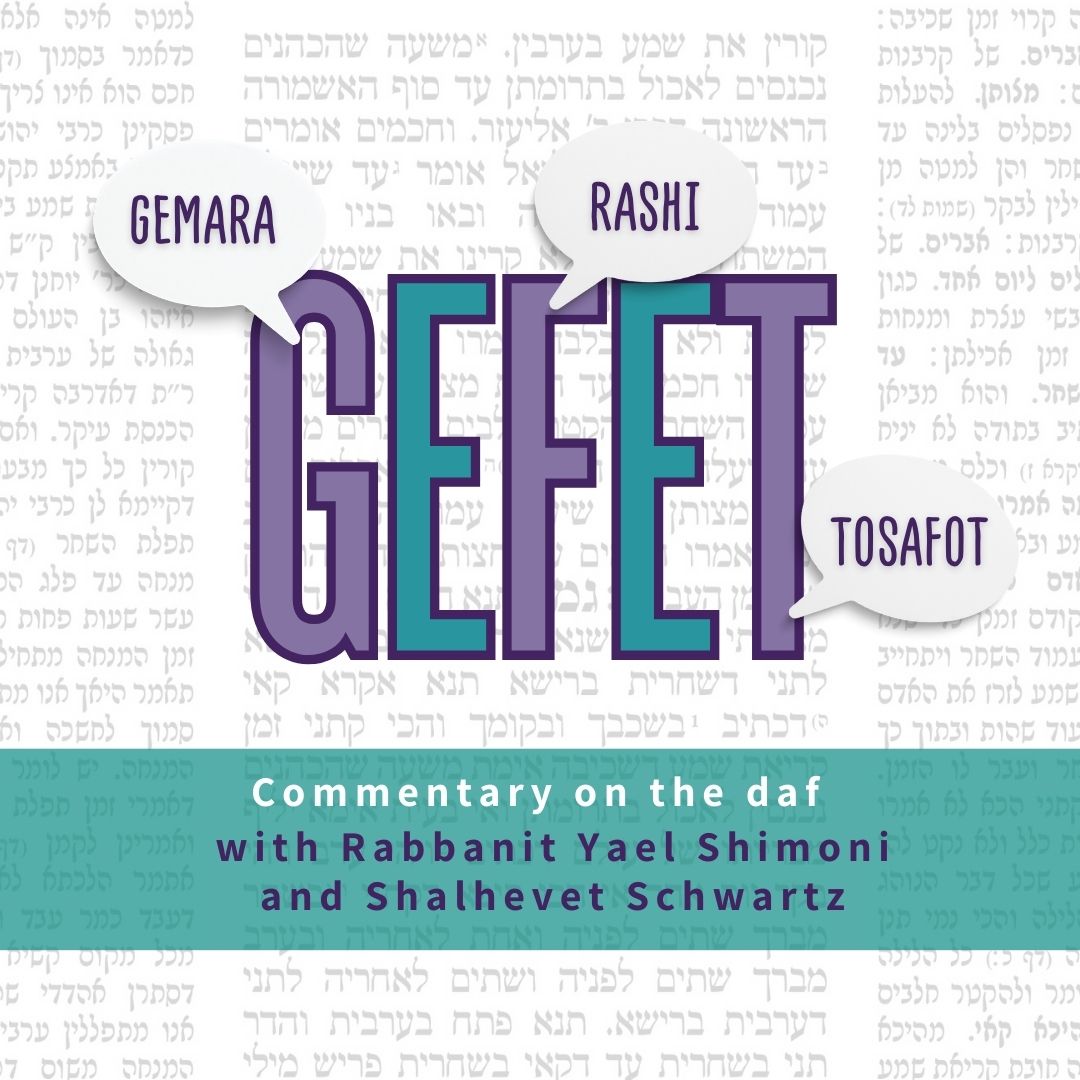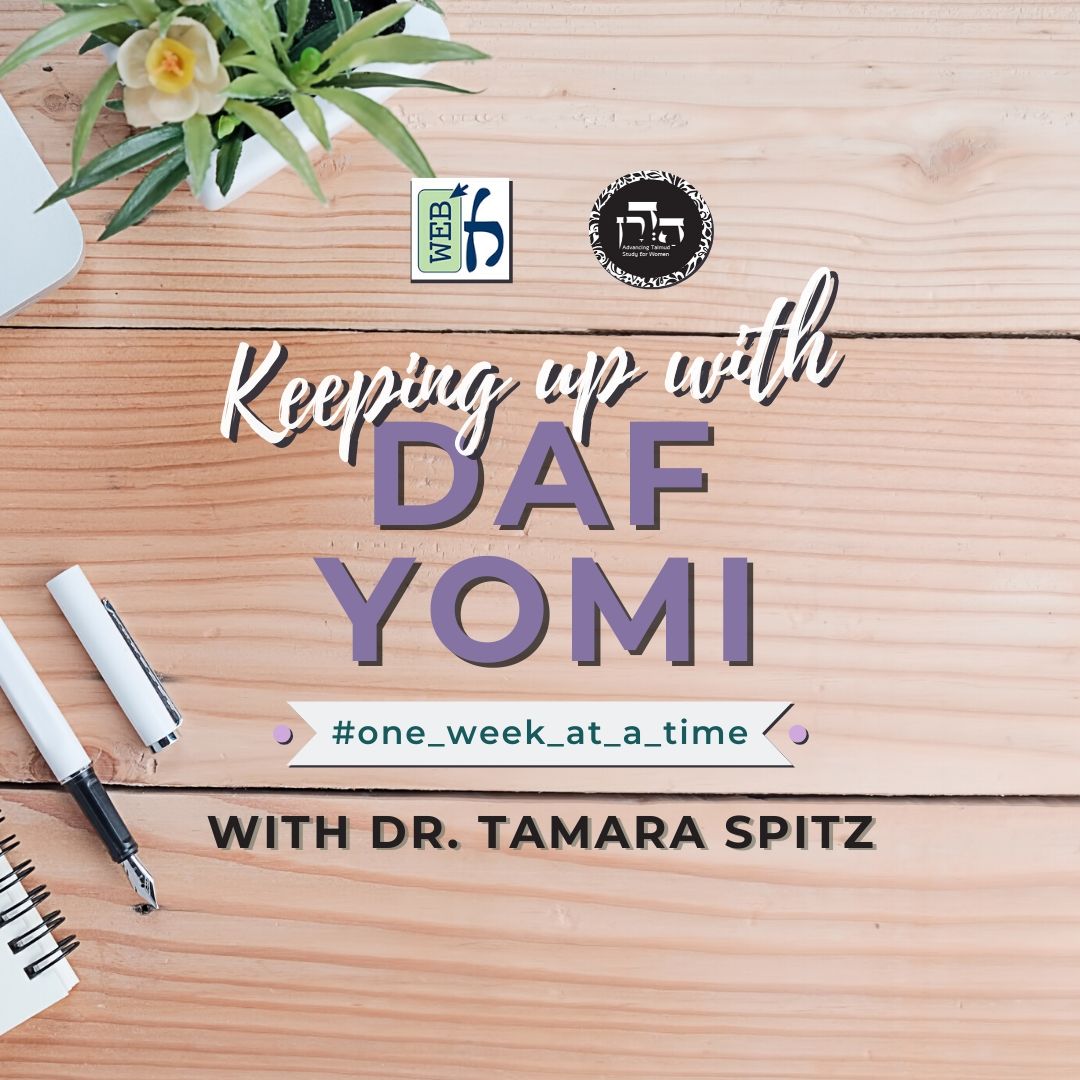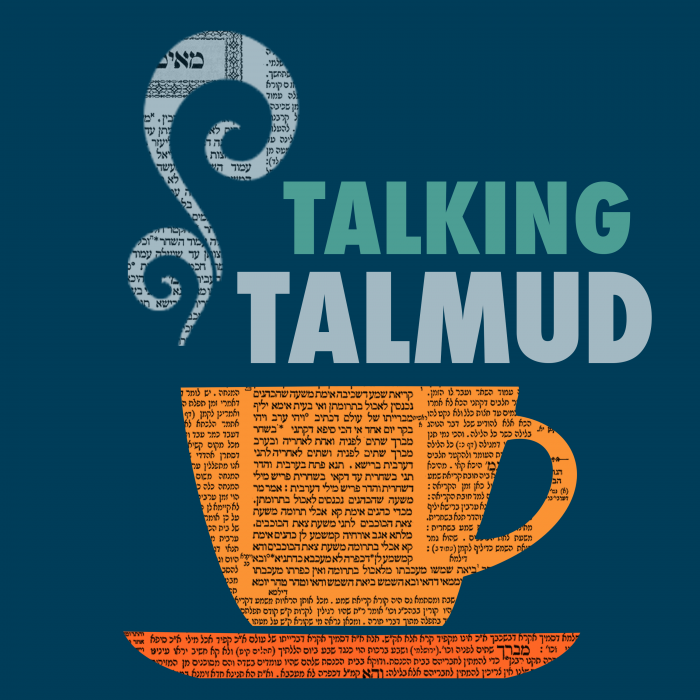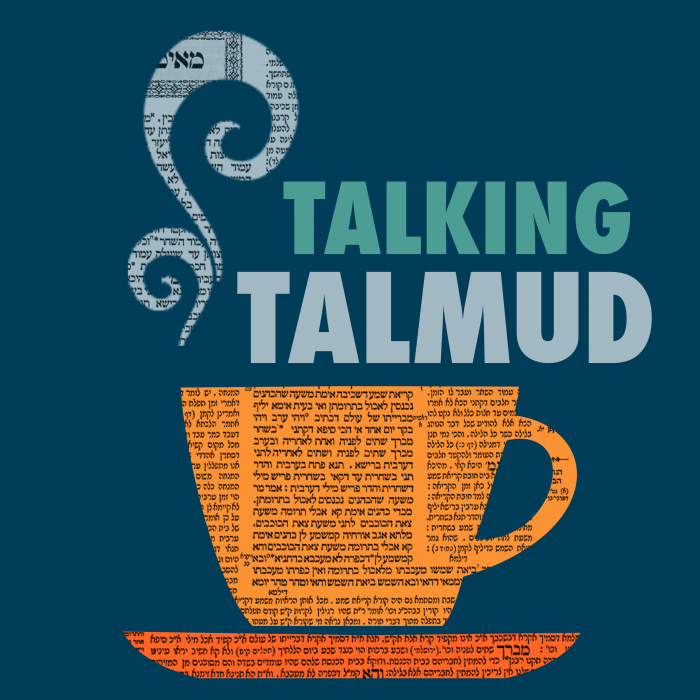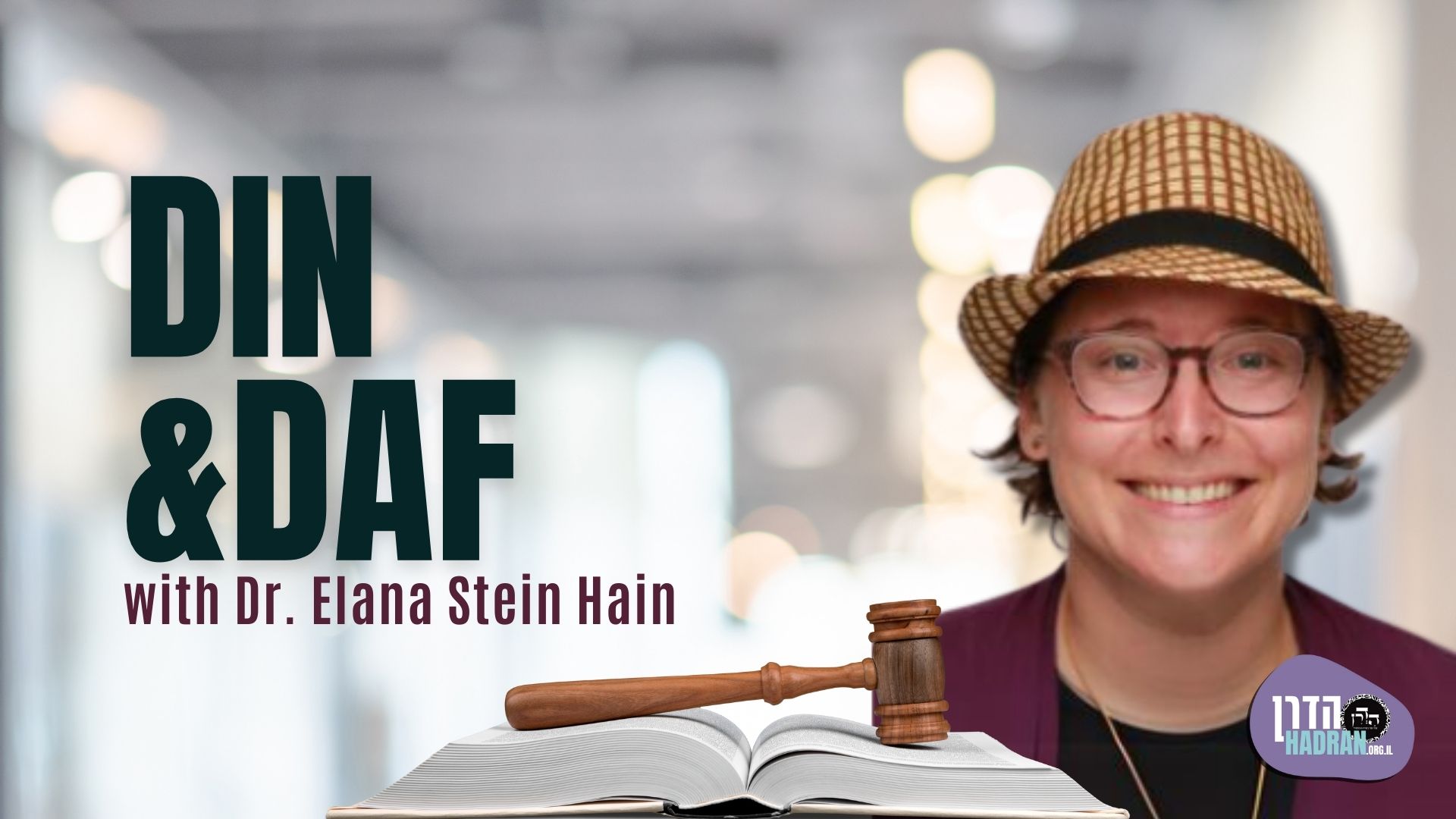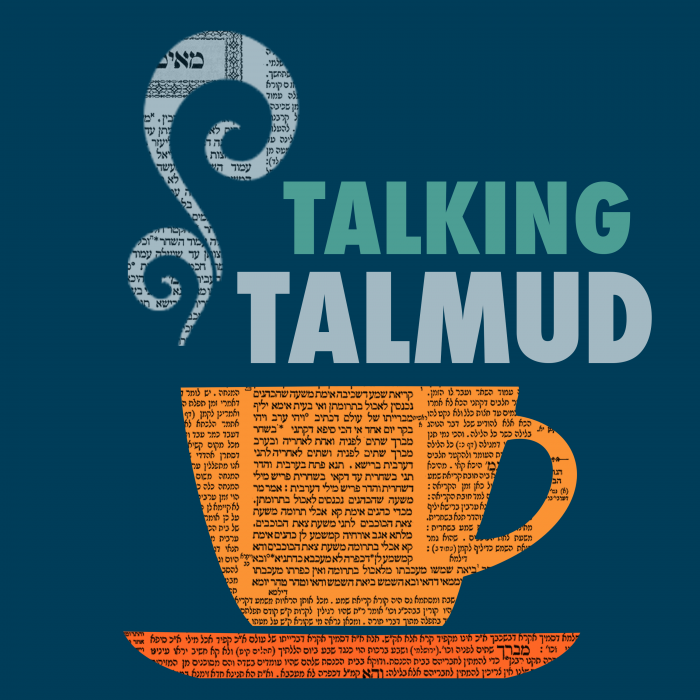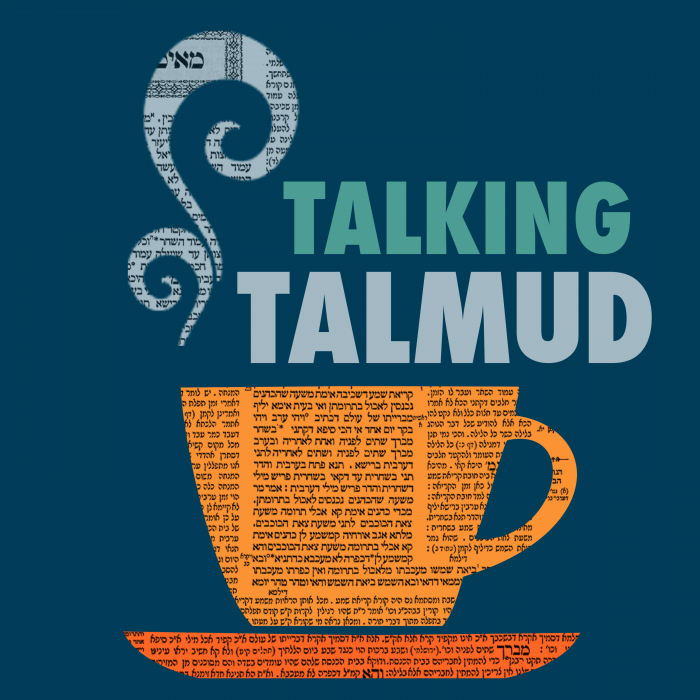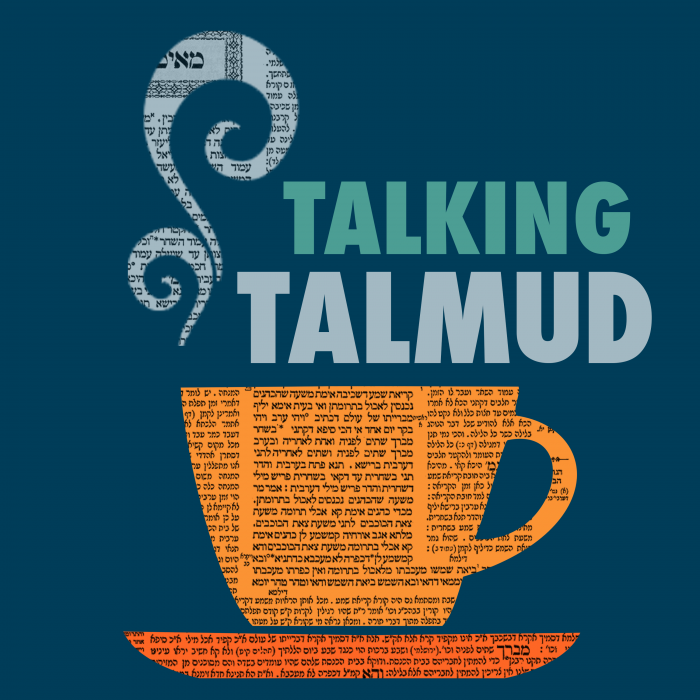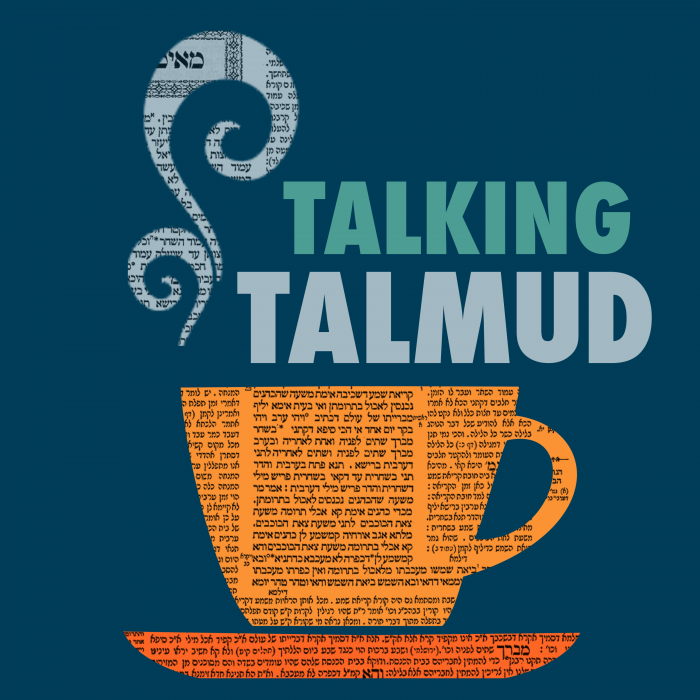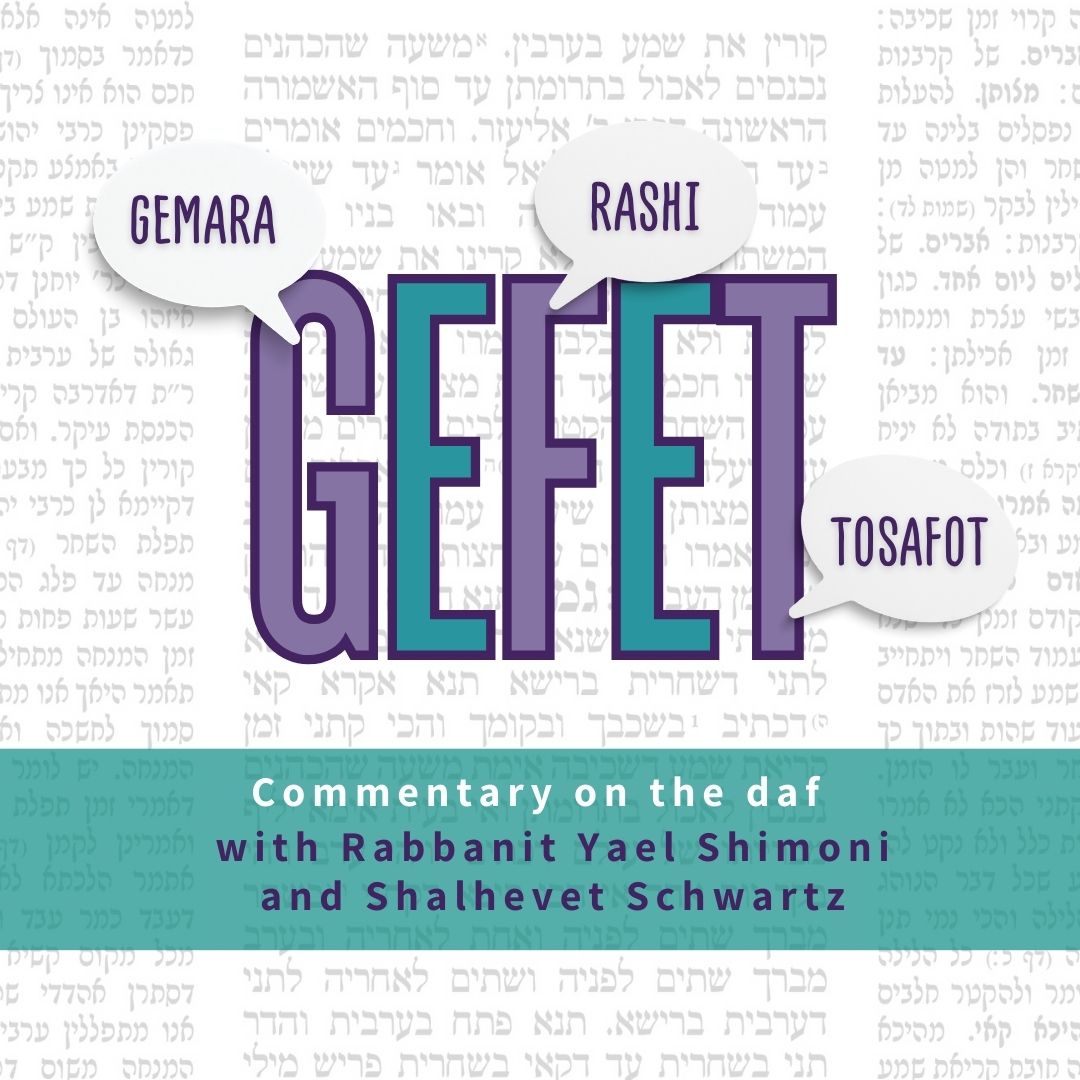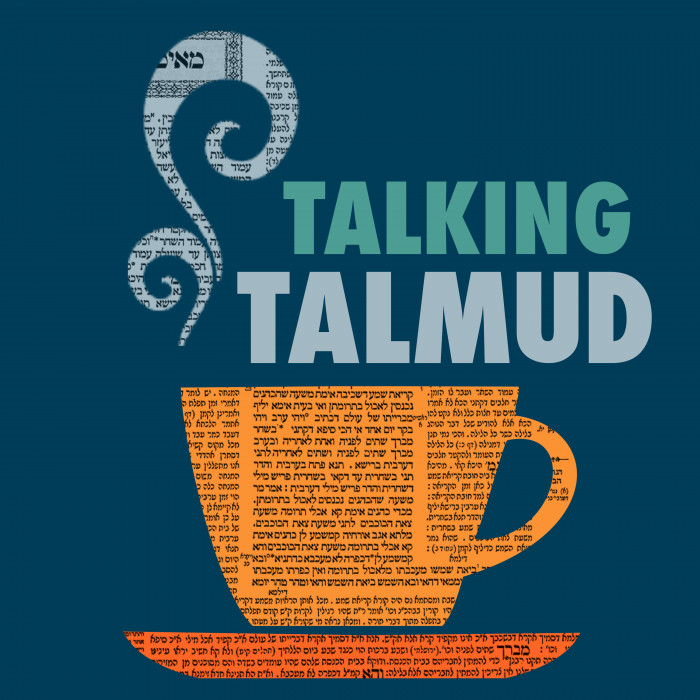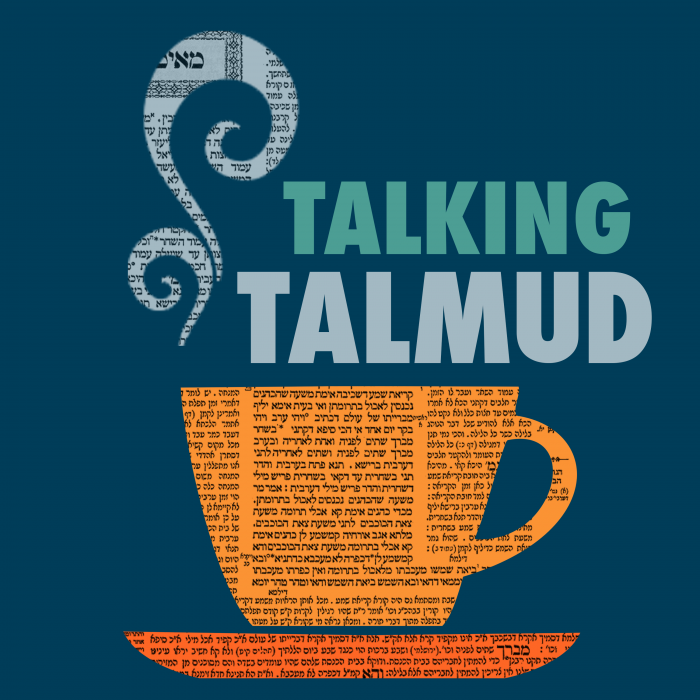Bava Batra 73
וְלֵימָא מַחְלוֹקֶת רַבִּי שִׁמְעוֹן וְרַבָּנַן! הָא קָא מַשְׁמַע לַן – דְּרַבִּי מְנַחֵם בְּרַבִּי יוֹסֵי כְּרַבִּי שִׁמְעוֹן סְבִירָא לֵיהּ.
The Gemara asks: But let us say that this is the dispute between Rabbi Shimon and the Rabbis, as it was concluded previously that according to Rabbi Shimon himself, even the carob and sycamore trees are not consecrated. The Gemara answers: Reish Lakish teaches us this, that Rabbi Menaḥem, son of Rabbi Yosei, holds in accordance with the opinion of Rabbi Shimon, and therefore Rabbi Shimon is not the only Sage who holds this opinion.
הַדְרָן עֲלָךְ הַמּוֹכֵר אֶת הַבַּיִת
הַמּוֹכֵר אֶת הַסְּפִינָה – מָכַר אֶת הַתּוֹרֶן וְאֶת הַנֵּס וְאֶת הָעוֹגִין, וְאֶת כָּל הַמַּנְהִיגִין אוֹתָהּ. אֲבָל לֹא מָכַר לֹא אֶת הָעֲבָדִים, וְלֹא אֶת הַמַּרְצוּפִין, וְלֹא אֶת הָאַנְתִיקֵי. וּבִזְמַן שֶׁאָמַר לוֹ: ״הִיא וְכׇל מַה שֶּׁבְּתוֹכָהּ״ – הֲרֵי כּוּלָּן מְכוּרִין.
MISHNA: One who sells a ship has sold along with it the toren, and the nes, and the ogin, and all of the equipment that is used for directing it. But he has not sold the slaves who serve as oarsmen, nor the packing bags that are used for transporting goods, nor the antikei on the ship. And when one said to the buyer: You are purchasing it, the ship, and all that it contains, all of these latter elements are also sold.
גְּמָ׳ ״תּוֹרֶן״ – אִיסְקַרְיָא. וְכֵן הוּא אוֹמֵר: ״אֶרֶז מִלְּבָנוֹן לָקָחוּ לַעֲשׂוֹת תֹּרֶן עָלָיִךְ״. ״נֵס״ – אַדְרָא. וְכֵן הוּא אוֹמֵר: ״שֵׁשׁ בְּרִקְמָה מִמִּצְרַיִם הָיָה מִפְרָשֵׂךְ לִהְיוֹת לָךְ לְנֵס״. ״עוֹגִין״ – תָּנֵי רַבִּי חִיָּיא: אֵלּוּ עוֹגִינִין שֶׁלָּהּ. וְכֵן הוּא אוֹמֵר: ״הֲלָהֵן תְּשַׂבֵּרְנָה עַד אֲשֶׁר יִגְדָּלוּ, הֲלָהֵן תֵּעָגֵנָה לְבִלְתִּי הֱיוֹת לְאִישׁ.
GEMARA: The toren is the mast [iskarya]. And in this regard it states: “They have taken cedars from Lebanon to make masts [toren] for you” (Ezekiel 27:5). The nes is the sail, and in this regard it states: “Of fine linen with richly woven work from Egypt was your sail, that it might be to you for an ensign [nes]” (Ezekiel 27:7). With regard to the meaning of ogin, Rabbi Ḥiyya teaches: These are the ship’s anchors, and so it states: “Would you tarry for them until they were grown? Would you shut yourselves off for them [te’agena] and have no husbands?” (Ruth 1:13). This demonstrates that the root ayin, gimmel, nun, means being shut up and held firmly in one place.
״מַנְהִיגִין״ – אָמַר רַבִּי אַבָּא: אֵלּוּ הַמְּשׁוֹטִין שֶׁלָּהּ. וְכֵן הוּא אוֹמֵר: ״אַלּוֹנִים מִבָּשָׁן עָשׂוּ מִשּׁוֹטָיִךְ״. וְאִי בָּעֵית אֵימָא, מֵהָכָא: ״וְיָרְדוּ מֵאֳנִיּוֹתֵיהֶם כֹּל תֹּפְשֵׂי מָשׁוֹט״.
The mishna teaches that the buyer acquires all the equipment used for directing the ship. Rabbi Abba says: These are the ship’s oars. And this is as it states: “Of the oaks of Bashan they have made your oars” (Ezekiel 27:6). Since a verse discussing ships focuses on its oars, evidently the oars are an integral part of the ship. And if you wish, say instead that it is demonstrated from here: “And all that handle the oar, the mariners, and all the pilots of the sea, shall come down from their ships” (Ezekiel 27:29).
תָּנוּ רַבָּנַן: הַמּוֹכֵר אֶת הַסְּפִינָה – מָכַר אֶת הָאִיסְכָּלָה, וְאֶת בּוֹר הַמַּיִם שֶׁבְּתוֹכָהּ. רַבִּי נָתָן אוֹמֵר: הַמּוֹכֵר אֶת הַסְּפִינָה – מָכַר אֶת הַבִּיצִּית. סוֹמְכוֹס אוֹמֵר: הַמּוֹכֵר אֶת הַסְּפִינָה – מָכַר אֶת הַדּוּגִית.
The Sages taught: One who sells a ship has also sold the gangway [iskala] used for boarding the ship, and the water tank it contains. Rabbi Natan says: One who sells a ship has sold the ship’s boat [bitzit], which is used as a lifeboat or for fishing in shallow waters. Sumakhos says: One who sells a ship has sold the dugit, as explained below.
אָמַר רָבָא: בִּיצִּית הַיְינוּ דּוּגִית. רַבִּי נָתָן – בַּבְלָאָה הֲוָה, קָארֵי לַהּ: ״בּוּצִּית״ – כִּדְאָמְרִי אִינָשֵׁי: בּוּצִּיָאתָא דְמֵיאשָׁן. סוֹמְכוֹס – דְּבַר אֶרֶץ יִשְׂרָאֵל, קָארֵי לַהּ: ״דּוּגִית״, כְּדִכְתִיב: ״וְאַחֲרִיתְכֶן בְּסִירוֹת דּוּגָה״.
Rava said: The bitzit is the same as the dugit. Rabbi Natan was a Babylonian, and therefore he called small boats butzit, as people say: The botziata, small boats, of Miashan. Sumakhos, who was from Eretz Yisrael, called these boats dugit, as it is written: “You shall be taken away with hooks, and your residue in fishing boats [duga]” (Amos 4:2).
אָמַר רַבָּה, אִשְׁתַּעוּ לִי נָחוֹתֵי יַמָּא: הַאי גַּלָּא דִּמְטַבַּע לִסְפִינָה – מִיתְחֲזֵי כִּי צוּצִיתָא דְנוּרָא חִיוּוֹרְתָּא בְּרֵישָׁא, וּמָחֵינַן לֵיהּ בְּאַלְווֹתָא דַּחֲקִיק עֲלֵיהּ – ״אֶהְיֶה אֲשֶׁר אֶהְיֶה יָהּ ה׳ צְבָאוֹת אָמֵן אָמֵן סֶלָה״, וְנָיַיח.
§ The Gemara cites several incidents that involve ships and the conversation of seafarers. Rabba said: Seafarers related to me that when this wave that sinks a ship appears with a ray of white fire at its head, we strike it with clubs that are inscribed with the names of God: I am that I am, Yah, the Lord of Hosts, amen amen, Selah. And the wave then abates.
אָמַר רַבָּה, אִשְׁתַּעוּ לִי נָחוֹתֵי יַמָּא: בֵּין גַּלָּא לְגַלָּא תְּלָת מְאָה פַּרְסֵי, וְרוּמָא דְגַלָּא תְּלָת מְאָה פַּרְסֵי. זִימְנָא חֲדָא הֲוָה אָזְלִינַן בְּאוֹרְחָא, וְדַלִּינַן גַּלָּא עַד דַּחֲזֵינַן בֵּי מַרְבַּעְתֵּיהּ דְּכוֹכְבָא זוּטָא, וְהַוְיָא לִי כְּמִבְזַר אַרְבְּעִין גְּרִיוֵי בִּזְרָא דְחַרְדְּלָא. וְאִי דַּלִּינַן טְפֵי – הֲוָה מִקְּלֵינַן מֵהַבְלֵיהּ.
Rabba said: Seafarers related to me that in a certain place between one wave and the next wave there are three hundred parasangs, and the height of a wave is three hundred parasangs. Once, seafarers recounted, we were traveling along the route and a wave lifted us up until we saw the resting place of a small star, and it appeared to me the size of the area needed for scattering forty se’a of mustard seeds. And if it had lifted us higher, we would have been scorched by the heat of the star.
וְרָמֵי לַהּ גַּלָּא קָלָא לַחֲבֶרְתַּהּ: ״חֲבֶירְתִּי, שְׁבַקְתְּ מִידֵּי בְּעָלְמָא דְּלָא שְׁטַפְתֵּיהּ, דְּנֵיתֵי אֲנָא וּנְאַבְּדֵיה?ּ״ אָמַר לֵיהּ: ״פּוֹק חֲזִי גְּבוּרְתָּא דְּמָרִיךְ, מְלָא חוּטָא חָלָא – וְלָא עֲבַרִי, שֶׁנֶּאֱמַר: ׳הַאוֹתִי לֹא תִירָאוּ נְאֻם ה׳, אִם מִפָּנַי לֹא תָחִילוּ אֲשֶׁר שַׂמְתִּי חוֹל גְּבוּל לַיָּם, חׇק עוֹלָם וְלֹא יַעַבְרֶנְהוּ׳״.
And the wave raised its voice and shouted to another wave: My friend, did you leave anything in the world that you did not wash away, that I may come and destroy it? The second wave said to it: Go out and see the greatness of your Master, God, as even when there is as much as a string of sand on the land I cannot pass, as it is stated: “Will you not fear Me, said the Lord; will you not tremble at My presence? Who has placed the sand for the bound of the sea, an everlasting ordinance, which it cannot pass?” (Jeremiah 5:22).
אָמַר רַבָּה: לְדִידִי חֲזֵי לִי הוּרְמִין בַּר לִילִית, כִּי קָא רָהֵיט אַקּוּפְיָא דְּשׁוּרָא דְמָחוֹזָא, וְרָהֵיט פָּרָשָׁא כִּי רְכִיב חֵיוְתָא מִתַּתָּאֵיהּ, וְלָא יָכֵיל לֵיהּ. זִמְנָא חֲדָא הֲוָה מְסָרְגָאן לֵיהּ תַּרְתֵּי כּוּדַנְיָיתֵי, וְקָיְימָן
§ Rabba said: I have seen the one called Hurmin, son of Lilith, when he was running on the pinnacles of the wall of the city of Meḥoza, and a horseman was riding an animal below him but was unable to catch up to him. Once, they saddled for him two mules and they stood
אַתְּרֵי גִישְׁרֵי דְרוֹגְנַג; וְשָׁוַאר מֵהַאי לְהַאי וּמֵהַאי לְהַאי, וְנָקֵיט תְּרֵי מִזְגֵי דְחַמְרָא בִּידֵיהּ, וּמוֹרִיק מֵהַאי לְהַאי וּמֵהַאי לְהַאי, וְלָא נָטְפָא נִיטּוּפְתָּא לְאַרְעָא; וְאוֹתוֹ הַיּוֹם ״יַעֲלוּ שָׁמַיִם יֵרְדוּ תְהוֹמוֹת״ הֲוָה. עַד דִּשְׁמַעוּ בֵּי מַלְכוּתָא, וְקַטְלוּהוּ.
on the two bridges of the river Rognag, and he jumped from this one to that one, and from that one to this one. And he was holding two cups of wine in his hands and was pouring from this one to that one, and from that one to this one, and not one drop fell to the ground. And that day was stormy, similar to the description in a verse dealing with seafarers: “They mounted up to the heavens, they went down to the deeps; their soul melted away because of trouble” (Psalms 107:26). He continued in this manner until word of his behavior was heard in the house of the king, and they killed him.
אָמַר רַבָּה: לְדִידִי חֲזֵי לִי אוּרְזִילָא בַּר יוֹמֵיהּ, דַּהֲוָה כְּהַר תָּבוֹר. וְהַר תָּבוֹר כַּמָּה הָוֵי? אַרְבַּע פַּרְסֵי. וּמְשָׁאכָא דְצַוְּארֵיהּ תְּלָתָא פַּרְסֵי, וּבֵי מַרְבַּעְתָּא דְרֵישֵׁיהּ פַּרְסָא וּפַלְגָא. רְמָא כּוּפְתָּא, וּסְכַר לֵיהּ לְיַרְדְּנָא.
Rabba said: I have seen a day-old antelope [urzila] that was as large as Mount Tabor. And how large is Mount Tabor? It is four parasangs. And the length of its neck was three parasangs, and the place where his head rests was a parasang and a half. It cast feces [kufta] and thereby dammed up the Jordan.
וְאָמַר רַבָּה בַּר בַּר חָנָה: לְדִידִי חַזְיָא לִי הָהִיא אַקְרוּקְתָּא, דְּהַוְיָא כִּי אַקְרָא דְהַגְרוּנְיָא. וְאַקְרָא דְהַגְרוּנְיָא כַּמָּה הָוְיָא? שִׁתִּין בָּתֵּי. אֲתָא תַּנִּינָא בַּלְעַהּ. אֲתָא פּוּשְׁקַנְצָא וּבַלְעַהּ לְתַנִּינָא, וּסְלֵיק יְתֵיב בְּאִילָנָא. תָּא חֲזִי כַּמָּה נְפִישׁ חֵילֵיהּ דְּאִילָנָא. אָמַר רַב פָּפָּא בַּר שְׁמוּאֵל: אִי לָא הֲוַאי הָתָם, לָא הֵימַנִי.
And Rabba bar bar Ḥana said: I have seen a certain frog [akrokta] that was as large as the fort [akra] of Hagronya. And how large is the fort of Hagronya? It is as large as sixty houses. A snake came and swallowed the frog. A raven came and swallowed the snake, and flew up and sat in a tree. Come and see how great is the strength of the tree, which could bear the weight of that raven. Rav Pappa bar Shmuel said: If I had not been there and seen this, I would not believe it.
וְאָמַר רַבָּה בַּר בַּר חָנָה: זִימְנָא חֲדָא הֲוָה קָא אָזְלִינַן בִּסְפִינְתָּא, וַחֲזֵינַן הָהוּא כַּוְורָא דְּיָתְבָא לֵיהּ אָכְלָה טִינָא בְּאוּסְיֵיהּ, וְאַדְחוּהוּ מַיָּא וְשַׁדְיוּהוּ לְגוּדָּא, וַחֲרוּב מִינֵּיהּ שִׁתִּין מָחוֹזֵי. וַאֲכוּל מִינֵּיהּ שִׁתִּין מָחוֹזֵי, וּמְלַחוּ מִינֵּיהּ שִׁתִּין מָחוֹזֵי, וּמַלִּאוּ מֵחַד גִּלְגְּלָא דְעֵינֵיהּ תְּלָת מְאָה גַּרְבֵי מִשְׁחָא. וְכִי הֲדַרַן לְבָתַר תְּרֵיסַר יַרְחֵי שַׁתָּא, חֲזֵינַן דַּהֲוָה קָא מְנַסְּרִי מִגַּרְמֵיהּ מְטַלְּלָתָא, וְיָתְבִי לְמִבְנִינְהוּ הָנָךְ מָחוֹזֵי.
§ And Rabba bar bar Ḥana said: Once we were traveling in a ship and we saw a certain fish in whose nostril [be’usyeih] a mud eater [akhla tina], i.e., a type of insect, had sat and killed him. And the waters thrust the fish and threw it upon the shore. And sixty districts were destroyed by the fish, and sixty districts ate from it, and another sixty districts salted its meat to preserve it. And they filled from one of its eyeballs three hundred flasks of oil. And when we returned there after the twelve months of the year had passed, we saw that they were cutting beams from its bones, and they had set out to build those districts that had been destroyed.
וְאָמַר רַבָּה בַּר בַּר חָנָה: זִימְנָא חֲדָא הֲוָה קָא אָזְלִינַן בִּסְפִינְתָּא, וַחֲזֵינַן הָהוּא כְּווֹרָא דְּיָתְבָא לֵיהּ חָלְתָּא אַגַּבֵּיהּ וְקָדַח אַגְמָא עִילָּוֵיהּ. סָבְרִינַן יַבֶּשְׁתָּא הִיא, וּסְלֵקִינַן וַאֲפֵינַן וּבַשְּׁלִינַן אַגַּבֵּיהּ. וְכַד חַם גַּבֵּיהּ אִתְהֲפִיךְ, וְאִי לָאו דַּהֲוָה מְקָרְבָא סְפִינְתָּא, הֲוָה טָבְעִינַן.
And Rabba bar bar Ḥana said: Once we were traveling on a ship and we saw a certain fish upon which sand had settled, and grass grew on it. We assumed that it was dry land and went up and baked and cooked on the back of the fish, but when its back grew hot it turned over. And were it not for the fact that the ship was close by, we would have drowned.
וְאָמַר רַבָּה בַּר בַּר חָנָה: זִימְנָא חֲדָא הֲוָה אָזְלִינַן בִּסְפִינְתָּא, וּסְגַאי סְפִינְתָּא בֵּין שִׁיצָא לְשִׁיצָא דִּכְוָארָא תְּלָתָא יוֹמֵי וּתְלָתָא לֵילָווֹתָא, אִיהוּ בִּזְקִיפָא וַאֲנַן בְּשִׁיפּוּלָא. וְכִי תֵּימָא: לָא מְסַגְּיָא סְפִינְתָּא טוּבָא, כִּי אֲתָא רַב דִּימִי אָמַר: כְּמֵיחַם קוּמְקוּמָא דְמַיָּא מְסַגְּיָא שִׁתִּין פַּרְסֵי, וְשָׁאדֵי פָּרָשָׁא גִּירָא – וְקָדְמָה לֵיהּ. וְאָמַר רַב אָשֵׁי: הָהוּא גִּילְדָּנָא דְיַמָּא הוּא, דְּאִית לֵיהּ תְּרֵי שִׁייצֵי.
And Rabba bar bar Ḥana said: Once we were traveling in a ship and the ship traveled between one fin [shitza] and the other fin of a fish for three days and three nights. The fish was swimming in the opposite direction of the ship, so that it was swimming upward against the wind and the waves, and we were sailing downward. And if you would say that the ship did not travel very fast, when Rav Dimi came from Eretz Yisrael to Babylonia he said: In the short amount of time required to heat a kettle of water, that ship can travel sixty parasangs. And another demonstration of its speed is that a horseman shot an arrow, and yet the ship was traveling so swiftly that it outraced it. And Rav Ashi said: That fish was a sea gildana, which has two sets of fins.
וְאָמַר רַבָּה בַּר בַּר חָנָה: זִימְנָא חֲדָא הֲוָה אָזְלִינַן בִּסְפִינְתָּא, וַחֲזֵינַן הָהוּא צִיפְּרָא דְּקָאֵים עַד קַרְצוּלֵיהּ בְּמַיָּא, וְרֵישֵׁיהּ בִּרְקִיעַ. וְאָמְרִינַן לֵיכָּא מַיָּא, וּבָעֵינַן לֵחוּת לְאִקּוֹרֵי נַפְשִׁין; וּנְפַק בַּת קָלָא וְאָמַר לַן: ״לָא תֵּיחוּתוּ הָכָא, דִּנְפַלַת לֵיהּ חֲצִיצָא לְבַר נַגָּרָא הָא שַׁב שְׁנֵי, וְלָא קָא מָטְיָא אַאַרְעָא״. וְלָאו מִשּׁוּם דִּנְפִישִׁי מַיָּא, אֶלָּא מִשּׁוּם דִּרְדִפִי מַיָּא. אָמַר רַב אָשֵׁי: וְהָהוּא זִיז שָׂדַי הוּא, דִּכְתִיב: ״וְזִיז שָׂדַי עִמָּדִי״.
And Rabba bar bar Ḥana said: Once we were traveling in a ship and we saw a certain bird that was standing with water up to its ankles [kartzuleih] and its head was in the sky. And we said to ourselves that there is no deep water here, and we wanted to go down to cool ourselves off. And a Divine Voice emerged and said to us: Do not go down here, as the ax of a carpenter fell into it seven years ago and it has still not reached the bottom. And this is not because the water is so large and deep. Rather, it is because the water is turbulent. Rav Ashi said: And that bird is called ziz sadai, wild beast, as it is written: “I know all the fowls of the mountains; and the ziz sadai is Mine” (Psalms 50:11).
וְאָמַר רַבָּה בַּר בַּר חָנָה: זִימְנָא חֲדָא הֲוָה קָא אָזְלִינַן בְּמַדְבְּרָא, וַחֲזֵינַן הָנְהוּ אֲווֹזֵי דְּשָׁמְטִי גַּדְפַיְיהוּ מִשֻּׁמְנַיְיהוּ, וְקָא נָגְדִי נַחֲלֵי דְמִשְׁחָא מִתּוּתַיְיהוּ. אָמֵינָא לְהוּ: אִית לַן בְּגַוַּיְיכוּ חֻלָקָא לְעָלְמָא דְאָתֵי? חֲדָא דְּלִי גַּדְפָּא, וַחֲדָא דְּלִי אַטְמָא. כִּי אֲתַאי לְקַמֵּיהּ דְּרַבִּי אֶלְעָזָר, אָמַר לִי: עֲתִידִין יִשְׂרָאֵל לִיתֵּן עֲלֵיהֶן אֶת הַדִּין.
And Rabba bar bar Ḥana said: Once we were traveling in the desert and we saw these geese whose wings were sloping because they were so fat, and streams of oil flowed beneath them. I said to them: Shall we have a portion of you in the World-to-Come? One raised a wing, and one raised a leg, signaling an affirmative response. When I came before Rabbi Elazar, he said to me: The Jewish people will eventually be held accountable for the suffering of the geese. Since the Jews do not repent, the geese are forced to continue to grow fat as they wait to be given to the Jewish people as a reward.
(סִימָן: כְּעַפְרָא דִתְכֵילְתָּא טְרַקְתֵּיהּ עַקְרַבָּא לְסִלְתֵּיהּ)
§ The Gemara provides a mnemonic for the items shown by an Arab man to Rabba bar bar Ḥana in the following stories: Like the dust of the sky-blue; the scorpion stung the basket.
וְאָמַר רַבָּה בַּר בַּר חָנָה: זִימְנָא חֲדָא הֲוָה קָא אָזְלִינַן בְּמַדְבְּרָא, וְאִיתְלַוִּי בַּהֲדַן הַהוּא טַיָּיעָא דַּהֲוָה שָׁקֵיל עַפְרָא וּמוֹרַח לֵיהּ, וְאָמַר: הָא אוֹרְחָא לְדוּכְתָּא פְּלָן, וְהָא אוֹרְחָא לְדוּכְתָּא פְּלָן. אָמְרִינַן לֵיהּ: כַּמָּה מְרַחֲקִינַן מִמַּיָּא? וְאָמַר לַן: הַבוּ לִי עַפְרָא. יָהֲבִינַן לֵיהּ, וְאָמַר לַן: תַּמְנֵי פַּרְסֵי. תָּנֵינַן וְיָהֲבִינַן לֵיהּ, אָמַר לַן דִּמְרַחֲקִינַן תְּלָתָא פַּרְסֵי. אֲפַכִית לֵיהּ, וְלָא יְכֵילִית לֵיהּ.
And Rabba bar bar Ḥana said: Once we were traveling in the desert and we were accompanied by a certain Arab who would take dust and smell it and say: This is the road to such and such a place, and that is the road to such and such a place. We said to him: How far are we from water? And he said to us: Bring me dust. We brought it to him, and he said: Eight parasangs. Later, we said this a second time, and gave him dust, and he said to us that we are at a distance of three parasangs. I switched the type of dust to test him, but I could not confuse him, as he was an expert in this matter.
אָמַר לִי: תָּא אַחֲוֵי לָךְ מֵתֵי מִדְבָּר. אֲזַלִי, חֲזִיתִינְהוּ וְדָמוּ כְּמַאן דְּמִיבַּסְּמִי,
That Arab said to me: Come, I will show you the dead of the wilderness, i.e., the Jewish people who left Egypt and died in the wilderness. I went and saw them; and they had the appearance of one who is intoxicated,



